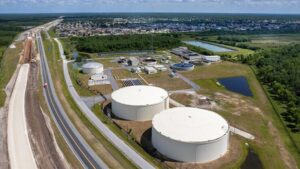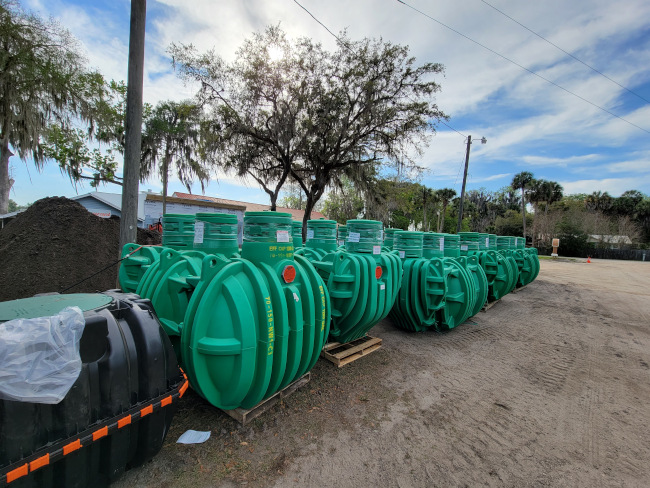By BLANCHE HARDY, PG

The Orlando Utilities Commission (OUC) has been recognized by Sierra Club this year for their commitment to reaching 100% Net Zero CO2 emissions by 2050.
The OUC earned a “B” rating in Sierra Club’s first annual report issued in 2021. OUC plans to reduce emissions to 50% by 2030 and 75% by 2040.
The Sierra Club surveyed 77 utilities for this year’s report card. The OUC is the highest scoring utility in Florida and one of only two Florida utilities to earn a “B” rating.
“Balancing sustainability with reliability, resiliency, and affordability is our constant focus,” said Clint Bullock, the OUC’s General Manager & CEO. “As with previous findings, this latest report shows we are on the right course for a clean energy future.”
The OUC is undertaking a number of steps to reach their zero emissions goal. The utility purchased the Osceola Generating Station (OGS), a 510-megawatt (MW) simple-cycle natural gas-fired power plant to facilitate their plan to phase out and retire Stanton Energy Center’s (SEC) coal-fired Unit 1 by 2025.
The SEC’s Unit 2 will be converted to natural gas by 2027. The utility anticipates the OGS will be fully operational by 2025, assuming its role to mitigate solar production fluctuations maintaining system-wide electric reliability.
The OUC developed an Electric Integrated Resource Plan (EIRP) and is implementing their resulting 30-year clean energy roadmap that includes recommendation to significantly reduce the use of coal by 2025 and to eliminate it entirely by 2027.
The Solar SunRisers are the seven utilities exhibiting the highest solar ambition as demonstrated by increase in watts per customer solar ratio between the base year (2021) and the four-year forecast (2025).
SACE issues an annual Solar in the Southeast report evaluating emissions trends for utilities across the Southeast. The 2022 report indicates OUC is on track to increase its solar watts per customer by 1,333 to reach 1,932 watts per customer by 2025, the most of any electric utility in Florida.
“Our designation as a ‘SunRiser’ is a testament to the innovative spirit that characterizes our team, said OUC General Manager and CEO, Clint Bullock. “I am very proud of our team’s shared focus to reach net zero CO2 emissions by 2050.” The OUC has committed $420 million to increasing its solar energy footprint, including the opening of two, 74.5 MW solar farms in 2024. By 2025, the OUC’s solar energy capacity is projected to produce 496 megawatts (MW), enough power for 90,000 typical Florida homes.
To help assure the reliability, the OUC announced an agreement to explore deployment of a Malta Inc. long-duration energy storage power plant as a reliable and commercially viable solution to achieve the utility’s net-zero carbon emission goals. Malta’s storage solution converts excess electricity into thermal energy which is stored in salt and coolant.
Pairing Malta’s energy storage system with the OUC’s increasing investment in solar energy generation should help meet their carbon-reduction goals.
Malta’s utility-scale 100+ megawatt system provides more hours of energy storage than lithium-ion batteries and provides energy storage diversity.
The increased duration power plant has the potential to ensure grid reliability for renewable energy resources, like solar. When needed, the Malta plant regenerates gigawatt hours of electricity for residential and commercial use.
Malta, Inc. developed the 100 megawatt Zero-Carbon Power Plant, as a like-for-like replacement for fossil fuel-fired plants that deliver on-demand clean energy 24/7.
The Malta plant will store electricity as thermal energy from eight hours to eight days or longer, later returning it to the grid to meet hourly, daily, and weekly needs. The system also provides clean heat.
The Malta power plant would be situated at the OUC’s Indian River Plant in Brevard County.
“Long-duration energy storage is vital to the OUC’s clean energy plans and our commitment to significantly reduce CO2 emissions. Malta’s innovative energy storage solution has the potential to help us reduce our CO2 emissions and provide a cleaner, greener energy future for our customers,” said Clint Bullock.●
























